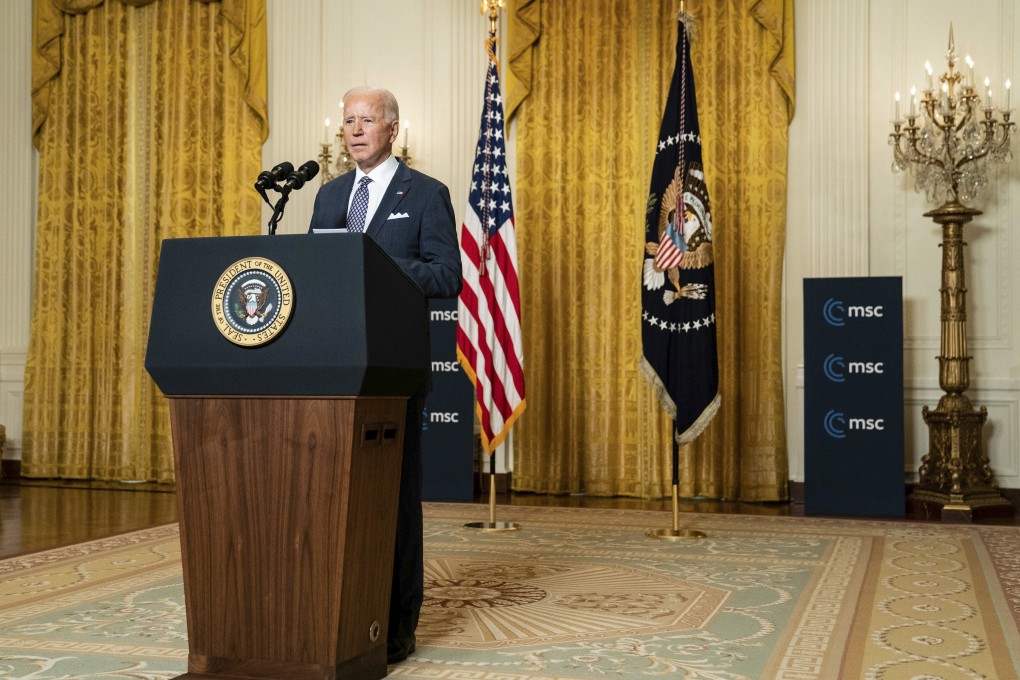US, EU must prepare for ‘long-term strategic competition with China’, says Joe Biden
- ‘We have to push back against the Chinese government’s economic abuses and coercion,’ US president says
- Chinese companies should be held to the same transparency standards as US and European companies, he adds

“How the United States, Europe and Asia work together to secure the peace and defend our shared values and advance our prosperity across the Pacific will be among the most consequential efforts we undertake,” Biden said on Friday, in one of his first foreign policy speeches as president, delivered virtually to the annual Munich Security Conference in Germany.
“Competition with China is going to be stiff,” he said, adding that the US and its allies in Europe have an obligation to stand up for democracy in the face of rising authoritarianism around the world.

03:29
US and EU ‘must prepare for long-term strategic competition with China’, says Biden
In the early weeks of the new administration, observers in China and elsewhere have been closely watching for any signals about how Washington may intend to engage with Beijing under Biden, who served as US vice-president for eight years between 2009 and 2017, when the relationship was warmer.
Chinese officials have spent recent weeks pushing the idea that the Trump administration alone had caused the relationship to unravel, and have been nudging Biden with the suggestion that he can unilaterally fix it.